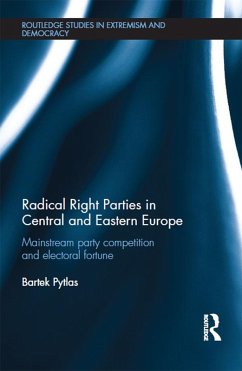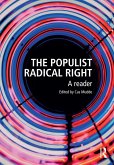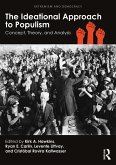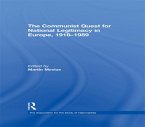This book is the first to provide a systematic theoretical framework and in-depth empirical research on the interaction between discursive influence, party competition and the electoral fortune of radical right parties in Central and Eastern Europe. It argues that in order to fully explain the impact of mainstream party strategies in this regard, it is vital to widen the analysis beyond competition over issues themselves, and towards their various legitimizing narratives and frame ownership. Up-to-date debates over policies of collective identity (minority, morality and nationalizing politics) in Hungary, Poland, and Slovakia serve as best cases to observe these under-researched phenomena. The analytical model is evaluated comparatively using original, primary data combined with election studies and expert surveys.
Dieser Download kann aus rechtlichen Gründen nur mit Rechnungsadresse in A, B, BG, CY, CZ, D, DK, EW, E, FIN, F, GR, HR, H, IRL, I, LT, L, LR, M, NL, PL, P, R, S, SLO, SK ausgeliefert werden.









